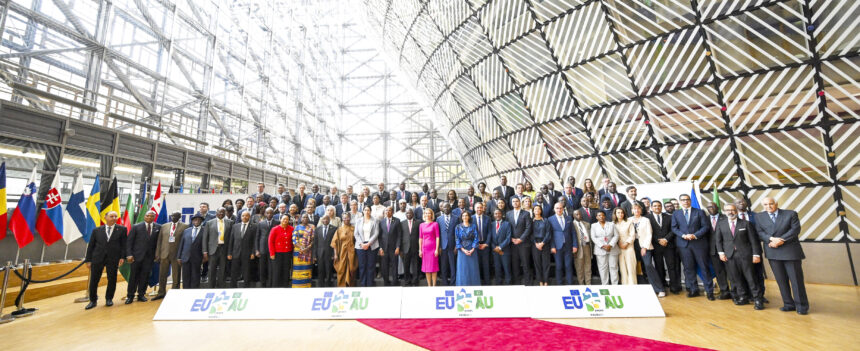The European Union (EU) and African Union (AU) reaffirmed their strategic partnership at the conclusion of the third EU-AU ministerial meeting.
It was held in preparation for the seventh AU-EU Summit this year.
The ministerial meeting served as a pivotal moment to take stock of progress on the Joint Vision for 2030, adopted at the sixth EU-AU Summit in 2022, as well as to strengthen the collective agenda for sustainable development, peace, prosperity and shared values across both continents.
The meeting was co-chaired by Kaja Kallas, high representative of the EU for foreign affairs and security policy, and Téte António, minister of external relations of Angola and chairperson of the AU executive council.
This is a testament to the maturity and importance of the AU-EU partnership, which now spans 25 years since the inaugural Cairo Summit in 2000. Jenelly Matundu, deputy minister of international relations and trade, led Namibia’s delegation.
She highlighted the African Continental Free Trade Area (AfCFTA) as a historic opportunity to promote sustainable development.
Speaking on the theme of ‘Prosperity’, she called for strengthened collaboration between Africa and the EU, particularly in infrastructure, industrialisation and skills transfer, to support the continent’s growth in line with the AU’s Agenda 2063.
Ministers reviewed achievements and set forward-looking priorities.
Discussions covered a wide array of shared interests: sustainable energy transitions, inclusive economic integration under the African Continental Free Trade Area (AfCFTA), the scaling up of global connectivity, infrastructure and sustainable development as well as investments via the Global Gateway Africa-Europe Investment Package, health security, peace and conflict resolution, migration, education and reform of the multilateral system.
Ministers reaffirmed their unwavering support for multilateralism and rules-based international order, addressing global issues including climate change, security threats, and reform of international institutions.
The inclusion of the African Union as a permanent member of the G20 was lauded as a milestone for global governance.
The EU-AU partnership also focused on people, with civil society organisations (CSOs) and youth from both continents actively participating at the Civil Society and Youth Forum on 20 May, which led to the adoption of a Joint Declaration of Civil Society and Youth, presented to the ministers at the closing session.
“This ministerial meeting is a powerful reminder that Africa and Europe are not just neighbours. We are partners in progress. Our shared values, mutual interests and joint ambitions are captured in the Joint Vision for 2030. We are making real strides in translating this vision into concrete outcomes,” said Ana Beatriz Martins, EU ambassador to Namibia. Having celebrated 35 years of EU-Namibia and 25 years of EU-AU partnership recently on Europe Day, EU ambassador expressed that Namibia, Africa and Europe stand to benefit immensely from this renewed momentum.
“From sustainable investment to health, peace and education, we are building a partnership of equals that reflects the hopes of our 1.9 billion citizens,” she remarked.
This ministerial meeting paves the way for the seventh AU-EU Summit in 2025 to be hosted in Africa, where the progress of the partnership over a quarter-century will be celebrated and a renewed path charted for the decades to come.



